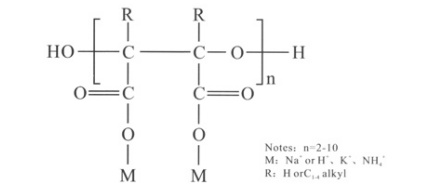
News
Sep . 24, 2024 03:38 Back to list
Chelated Iron Micro Nutrients Production Facility Overview and Benefits
The Role and Importance of Chelated Iron Micronutrients in Agriculture
In recent years, the focus on sustainable agriculture has led to an increased emphasis on the use of micronutrients, particularly chelated iron, to enhance plant growth and crop yields. Chelated iron is an essential nutrient that plays a crucial role in various physiological processes, including chlorophyll synthesis, nitrogen fixation, and overall plant metabolism. Its availability to plants can often be limited due to soil chemistry, making chelation a vital process in agriculture.
Chelated iron refers to iron that is bound to organic molecules, allowing for improved solubility and bioavailability. Unlike traditional iron sources that can become immobilized in the soil, chelated iron remains accessible to plants. This characteristic is particularly important in alkaline soils, where free iron is often unavailable due to its tendency to precipitate. By using chelated iron, farmers can ensure that plants receive the necessary iron to promote healthy growth and development.
The production of chelated iron micronutrients has seen significant advancements, with various manufacturing processes developed to create high-quality products. These factories utilize sophisticated technologies and high-purity raw materials to produce different types of chelated iron, such as EDTA (ethylenediaminetetraacetic acid) and EDDHA (ethylenediamine-N,N’-bis(hydroxyphenylacetic acid)). These compounds vary in their stability and effectiveness depending on soil conditions, making it essential for farmers to choose the right product for their specific agronomic needs.
chelated iron micronutrients factory

In addition to promoting plant health and improving crop yields, the use of chelated iron micronutrients can also contribute to sustainable farming practices
. By addressing nutrient deficiencies in a targeted manner, farmers can reduce the need for excessive chemical fertilizers, minimizing environmental impacts and promoting healthier ecosystems.Furthermore, as global population growth continues to strain food production systems, the role of chelated iron micronutrients is becoming increasingly critical. They not only enhance crop quality but also play a significant role in increasing food security.
In conclusion, chelated iron micronutrients are essential components in modern agriculture, helping to optimize plant growth while promoting sustainable practices. As research and technology advance, the future of chelated iron remains promising, paving the way for more efficient and eco-friendly agricultural methods.
-
Polyaspartic Acid Salts in Agricultural Fertilizers: A Sustainable Solution
NewsJul.21,2025
-
OEM Chelating Agent Preservative Supplier & Manufacturer High-Quality Customized Solutions
NewsJul.08,2025
-
OEM Potassium Chelating Agent Manufacturer - Custom Potassium Oxalate & Citrate Solutions
NewsJul.08,2025
-
OEM Pentasodium DTPA Chelating Agent Supplier & Manufacturer High Purity & Cost-Effective Solutions
NewsJul.08,2025
-
High-Efficiency Chelated Trace Elements Fertilizer Bulk Supplier & Manufacturer Quotes
NewsJul.07,2025
-
High Quality K Formation for a Chelating Agent – Reliable Manufacturer & Supplier
NewsJul.07,2025
